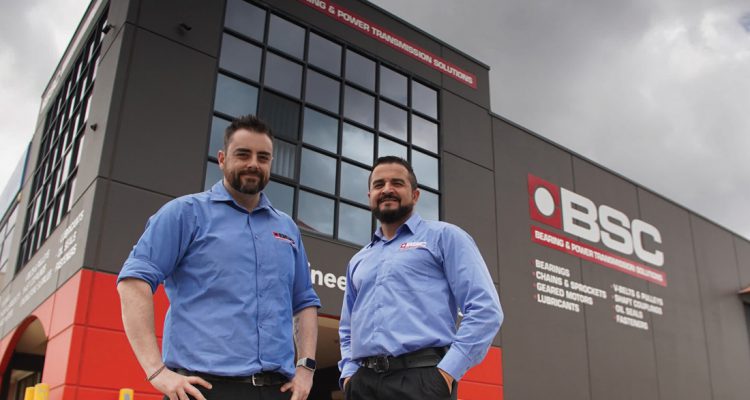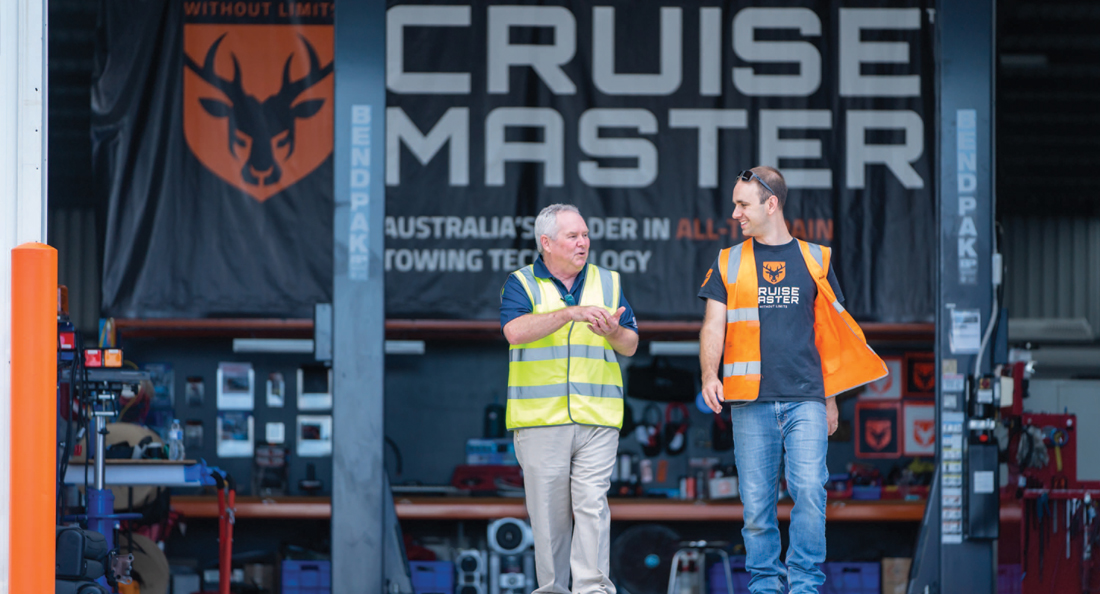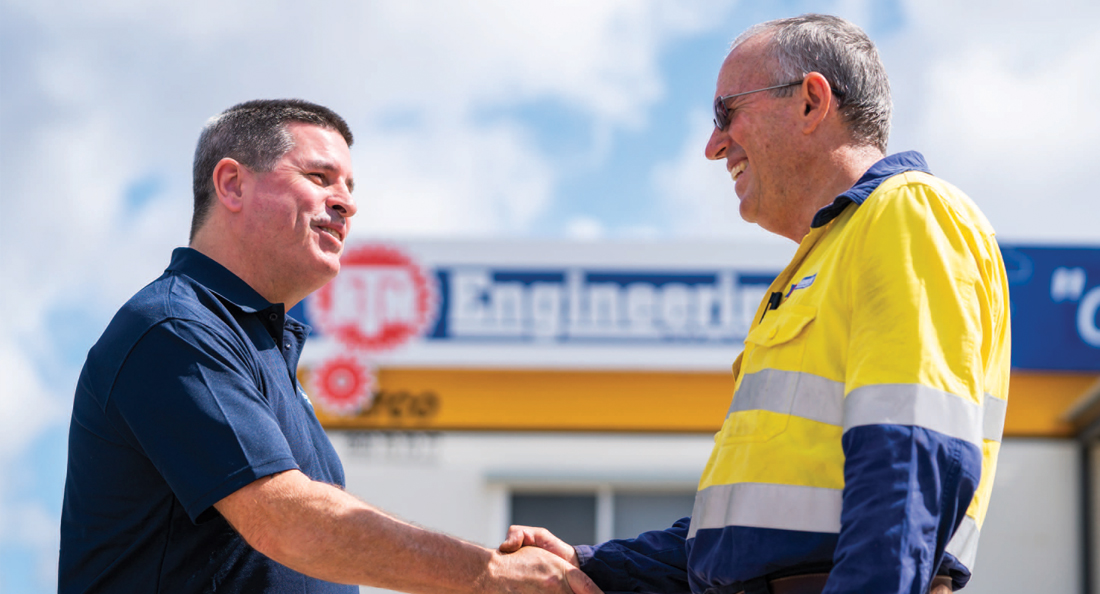They were known as the ‘yes men’ in the 70s. Their reputation for helping customers and their commitment to getting the job done was widely recognised. And while times have changed, and language too – to reflect gender-inclusive workplaces – the BSC approach remains the same. They are the ‘can-do people’.
“The most repeated feedback we get from our customers is ‘thank you’,” says Malcolm Wood, BSC’s State Manager for New South Wales.
“BSC is best known by its customers for delivering positive outcomes and value. This is evident in the millions of dollars in cost savings, as well as process improvements and training that we have delivered to our customers over the years,” he adds.
This year, BSC celebrates its centenary, making it Australia’s longest established bearing distributor and power transmission company. There are few businesses in Australia that could claim to have had such a far-reaching influence on the growth of the Australian industry as BSC.
Established in 1921, BSC, or Bearing Service Company, was a major contributor to the growth of Australian industries during the post-World War I era when bearings and industrial parts were in high demand. As industrial growth in Australia was taking off, BSC rose to the challenge, opening branches around the country to supply bearings wherever they were needed. By the 1970s, more than 70% of the bearing and power transmission distribution market in Australia was managed by BSC.
In 1984, BSC was acquired by James Jean Martin-Weber, the owner of Consolidated Bearing Company (CBC) and both companies today form part of the Motion Asia Pacific Group of businesses, spanning over 160 locations, with 1400 employees in Australia, New Zealand and South East Asia.
Initially started as a bearing-only company, BSC eventually diversified into power transmission and associated products, currently partnering with leading global brands such as Timken, Carlisle, Loctite, Diamond, Schaeffler, NSK and many more.
BSC’s popularity among customers, as Malcolm and multiple other long-term BSC employees testify to, can be explained by a decision that BSC made many years ago to focus on helping Australian industries run more efficiently and cost-effectively.
Bruce Davies, one of BSC’s longest-serving employees, who started as a store person in 1968 and retired as Product Category Manager for the Bearing Division a few years ago, says this policy was what shaped many of BSC’s decisions as a business.
“We realised early on that maintenance costs were a major hindrance for Australian businesses as they tried to compete globally, so we aligned our policies such that we focused more on component wear life hours rather than on the cost of the product. The idea was to help our customers get maximum life from each product to minimise their ongoing maintenance, repair and overhaul (MRO) costs, even if this did not always mean selling them the cheapest product available in the market,” says Bruce.
“We continued working on this direction to the point that we commissioned our suppliers of power transmission products to design software to assess the efficiency of existing drivelines being used by industries. A lot of Australian industries were built in the 60s and 70s and, therefore, they had dated drive technology. By sending technically trained representatives to our customers and assessing the efficiency of their existing drivelines, we were able to help them cost-effectively upgrade their plants and reduce operating costs,” Bruce continues.
BSC was also a pioneer in introducing several industrial products to the Australian market – among them adhesive brands such as Loctite, Dow silicone products and Molykote, as well as v-belts and pulleys, chains and sprockets, shaft couplings, motors and geared motors, high performance bearings and unitised bearings, according to Bruce.
An example was the unitised bearings that BSC first introduced under the QM Blue Brute brand (SN Series equivalent) which was later acquired by Timken and currently known as Timken spherical roller bearing solid-block housed units.
“The conventional SN Series equivalent conveyor bearings have up to eight individual components. Fitting these bearing is a very specialised task best repaired in a workshop. Breakdown conditions often made it difficult to achieve the manufacturer’s replacement procedure resulting in reduced wear-life and further breakdowns.
This unitised bearing and housing is a factory-sealed unit and can be reliably fitted in a tenth of the time and without huge clearance issues. The fitment is simple and when the customer decides to replace the bearing, they can simply take the bearing off, send it to our facility in Sydney and get the refurbished unit back as an assembled unit, ready to put back to service with ease.”
Over the past decades, BSC has also proved to be agile in realising the overarching market trends and aligning its policies accordingly. This included a diversification into the power transmission sector and development of a National Contract programme catered to the needs of major companies in Australia. The National Contract programme focused on food processing and packaging, utilising BSC’s regional branch network.
Through all of these changes, Peter Solloway, BSC Queensland State Sales Manager, says BSC always had an eye on one big picture: Becoming a one-stop-shop for the Australian industries.
“Sell, service, satisfy. These have been our core values at BSC,” says Peter.
Today, BSC continues to service the industry with innovative products and services. As Naz Paine, BSC General Manager for Marketing explains, BSC continually takes initiatives that help the Australian industries push forward.
“In the 90’s, it had been many years since the MRO industry had a single technical resource available with all the knowledge required to research, select and correctly fit products. The last such reference publication had been released in 1951. So, in 1997 BSC released a much larger publication which encompassed bearings, mechanical power transmission products and associated product. This became a turning point as the publication was an engineering resource rather than a
brand catalogue.
“This continues today with the Let’s Roll industry magazine that is focused on assisting the Australian businesses to understand best practices and innovative products and solutions that are available to improve their business’ efficiency and production,” says Naz.
The vision to serve customers to the best of their abilities remains strong among the BSC team, as the ‘Yes-men’ ad campaign in the 1970s promoted.
Naz’s closing remarks could very well serve as an agenda for the company’s next 100-year journey:
“BSC exists to keep our customers’ plant and equipment operating in an efficient and sustainable way. We will do this safely, focused on the growth of our people, maintaining integrity and trust to do what we promise. Our service will be responsive, efficient, and local, backed by our can-do attitude. In doing this, we will ensure care for the environment while working collaboratively with our people, customers, supplier and the wider community.”




